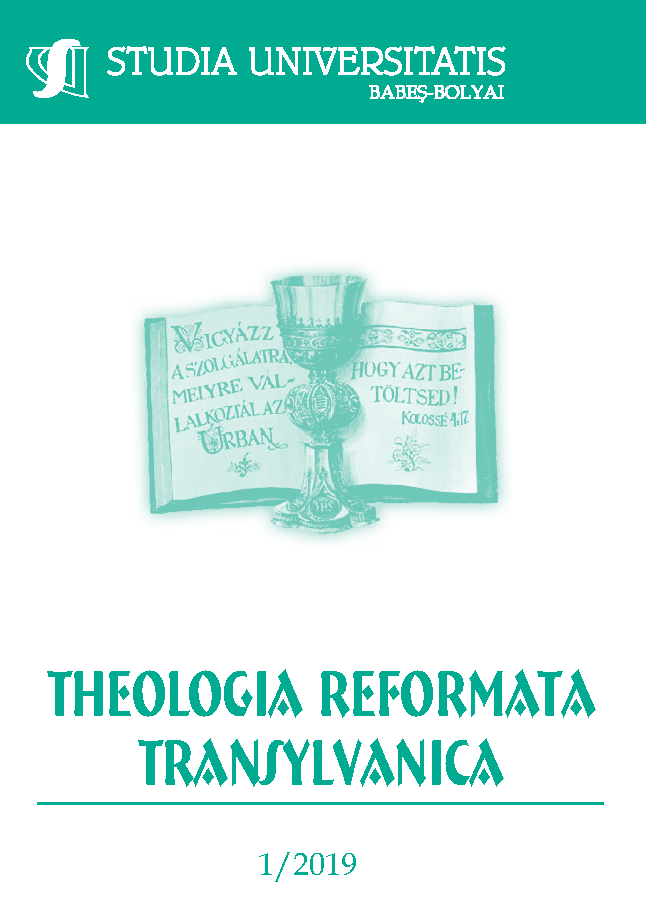Mártírok, áldozatok, túlélők. Vizsgálódás a szenvedés és identitásformálódás kérdésében
DOI:
https://doi.org/10.24193/subbtref.64.1.05Keywords:
victimization, suffering, victimary discourse, victimary identity, winnery identity, martyrdomAbstract
Martyrs, Victims, Survivors. Investigating Suffering and Identity Formation.
Modernity was dominated by the image of winner, while postmodernism can be associated with victimary thinking. Being a winner, among other things, meant that the person had the strength and the ability to put the other at his service. History was primarily the story of winners, or a story from the winner’s point of view. The defeated had to suffer not only the punishment imposed on him by the winner, but they could not count on the recognition and sympathy of the broader society. The postmodern observed the neglected victims for the first time by questioning the earlier dominant metanarratives. As the claims of authority were abandoned, the voice of the victims became louder. This led to an interchange between the role of winner and victim. Slavoj Žižek observes that „the ideology of victimization penetrates intellectual and political life even to the extent that in order for your work to have any ethical authority you must be able to present and legitimate yourself as in some sense victimized […] and the fundamental right becomes the right […] to tell your story; to formulate the specific narrative of your suffering.” This switch in the dominant image of our society has to be analysed. In the article below, we do it by presenting what Christian tradition teaches about suffering, based on the definitions and examination of David B. Barrett, Todd M. Johnson, and Elizabeth Castelli. The answer to the above-mentioned question is solely limited to the examination of martyrdom as a special form of suffering. Driving from the Christian tradition on martyrdom, we can recognize some dangers in our societal discourse and dominant ethical values. We shortly present some aspects of what it means to be closed into the victimary discourse and identity, and some possibilities of liberation presented by the theologies of Jürgen Moltmann and Miroslav Volf.
References
BADIOU, Alain: St. Paul: The Foundation of Universalism, Stanford University Press, Stan-ford, 2003.
BARRETT, David B. – JOHNSON, Todd M.: World Christian Trends AD 30–AD 2200. Interpreting the Annual Christian Megacensus, William Carey Library, Pasadena, 2001.
BOROWITZ, Eugene: Choices in Modern Jewish Thought, Behrman House, New York, 1983.
CASTELLI, Elizabeth: Martyrdom and Memory: Early Christian Culture Making, Columbia University Press, New York, 2004.
CHRISTIE, Nils: Conflict as Property, in: The British Journal of Criminology, 17/1, 1977, 1–15. http://doi.org/10.1093/oxfordjournals.bjc.a046783 (Utolsó megtekintés: 2018. 10. 25.)
ESHELMAN, Raoul: After Postmodernism: Performatism in Literature, in: Anthropoetics XI (2 /Fall 2005/Winter 2006) http://anthropoetics.ucla.edu/ap1102/perform05/#n23 (Utolsó megtekintés: 2018. 05. 24.)
GANS, Eric: Victimary Culture, in: Chronicles of Love and Resentment, No. 40/27.04.1996. http://anthropoetics.ucla.edu/views/vw40/ (Utolsó megtekintés: 2018. 05. 25.)
GUTIÉRREZ, Gustavo: A Theology of Liberation: History, Politics, and Salvation, Orbis, Maryknoll, 1988.
LAKNER Dávid – PINTÉR Bence: #MeToo: lavinát indított a Weinstein-ügy a közösségi médiában, in: Magyar Nemzet, 2017. október 17. https://mno.hu/belfold/metoo-lavinat-inditott-a-weinstein-ugy-a-kozossegi-mediaban-2421973 (Utolsó megtekintés: 2018. 05. 29.)
MARSHALL, Christopher: Justice, Restorative, in: GREEN, Joel B. (szerk.): Dictionary of Scripture and Ethics, Baker Academics, Grand Rapids, 2011.
MARSHALL, Tony F.: Restorative Justice: an Overview, 1999. http://www.homeoffice.gov.uk/rds/pdfs/occ-resjus.pdf (Utolsó megtekintés: 2018. 10. 21.)
MOLTMANN, Jürgen: The Crucified God, Translated from the German by R.A. Wilson & J. Bowden, SCM, London, 1974.
MOLTMANN, Jürgen: Theology of Hope, SCM, London, 1967.
NEILMAN, Susan: Moral Clarity: A Guide for Grown-Up Idealists, Princeton University Press, Oxford, 2009.
NEILMAN, Susan: Victims and Heroes. The Tanner Lectures on Human Values, University of Michigan, 2010. 14. https://tannerlectures.utah.edu/_documents/a-to-z/n/Neiman_10.pdf (Utolsó megtekintés: 2018. 06. 01.)
NEILMAN, Susan: What Makes a Moral Hero? https://www.abc.net.au/religion/what-makes-a-moral-hero/10100488 (Utolsó megtekintés: 2018. 10. 01.)
ROTHMAN, Joshua: What „Gone Girl” Is Really About, in: The New Yorker, 08/10/2014. https://www.newyorker.com/books/joshua-rothman/gone-girl-really (utolsó megtekintés: 2018. máj. 29.)
SCHAFER, Stephen: The Victim and His Criminal: A Study in Functional Responsibility, Random House, New York, 1968.
SINKA Csaba: Keresztény mártírjaink, in: Szolgatárs, 2013. ápr. 24.
TAYLOR, Peter: Mitől modern a világrendszer? Hétköznapi modernitás és globális hegemónia, in: eSZMÉLET, 1997. ápr. 1. http://www.eszmelet.hu/peter_taylor-mitol-modern-a-vilagrendszer-hetkoznapi-modern/ (Utolsó megtekintés: 2018. 06. 01.)
VAN DE BEEK, Abraham: Why? On Suffering, Guilt, and God, Eerdmans, Grand Rapids, 1990.
VISKY Béla: Játék és alap. Teodicea-kísérletek a kortárs teológiában, Koinónia, Kolozsvár, 2006.
VOLF, Miroslav: Ölelés és kirekesztés. Teológiai vizsgálódás az azonosság, a másság és kiengesztelődés tárgykörében, Harmat, Budapest, 2001.
VON HENTING, Hans: The Criminal and His Victim, Yale University Press, New Haven, 1948.
WELLS, Thomas R.: The Cult of Victimhood, https://www.philosophersbeard.org/2011/11/cult-of-victimhood.html (Utolsó megtekin-tés: 2018. 05. 29.)
WILLIAMS, Rowan: Lost Icons: Reflections on Cultural Bereavement, T & T Clark, Edinburgh, 2000.
ŽIŽEK, Slavoj – DALY, Glyn: Conversations with Slavoj Žižek, Polity, Cambridge, 2004.
Más nyelvű címek:
Martyrs, victims, survivors.
Investigating suffering and identity formation
Martiri, victime, supraviețuitori.
Investigarea problemei suferinței și formării identității
Downloads
Published
How to Cite
Issue
Section
License
Copyright (c) 2019 Studia Universitatis Babeș-Bolyai Theologia Reformata Transylvanica

This work is licensed under a Creative Commons Attribution-NonCommercial-NoDerivatives 4.0 International License.






